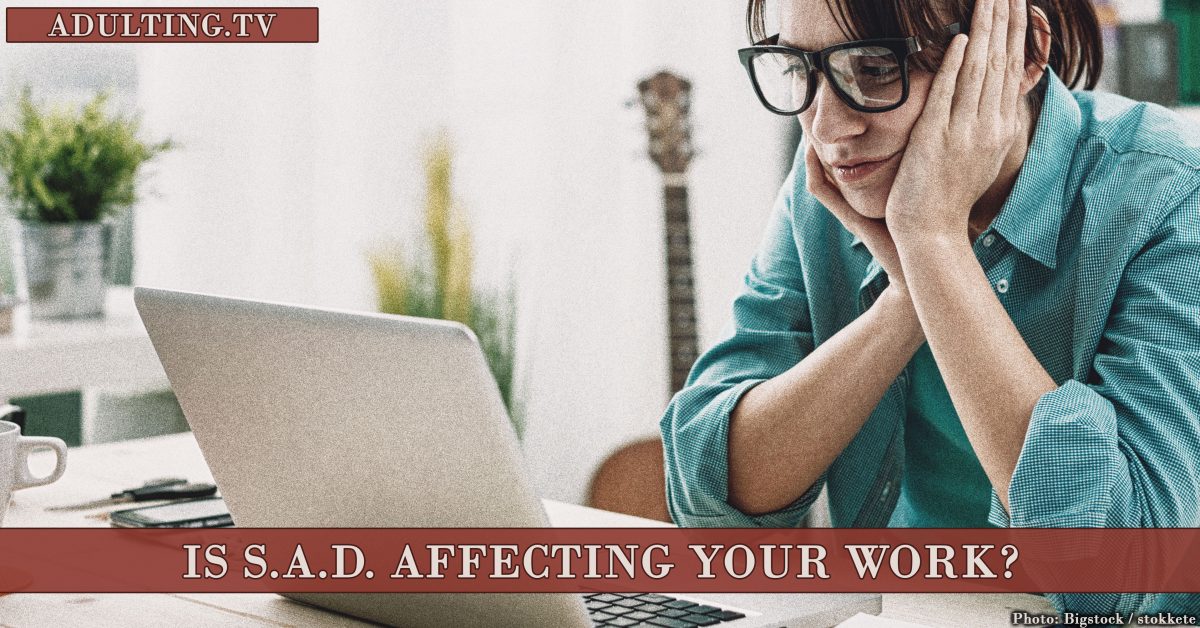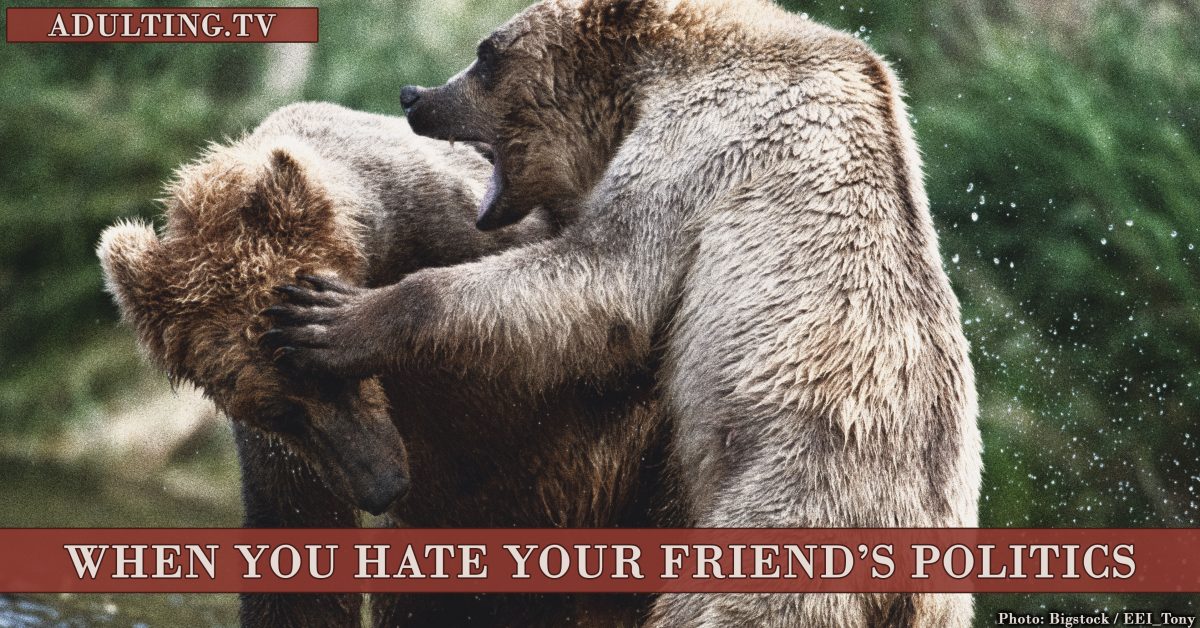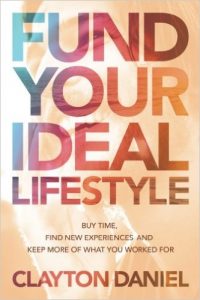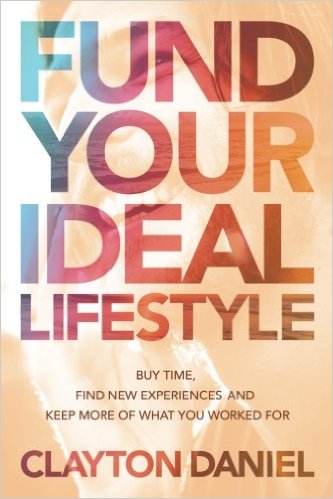So, you went on another diet. And that diet failed you.
Dieting is no fun and it gets less fun the older we get. The older we get, the smarter we need to be about dieting.
When I was in high school, I didn’t have to diet. When I was in college, eliminating cheese from my diet for a week got me back into shape. Today, that’s not nearly enough.
It’s even worse when you diet and gained weight anyway. How does that happen?
Cursed cortisol.
If you’re on a diet, you’re likely on a cardio routine. That means long bike rides, long walks, long runs, long times in a humid, body-sweat-infused exercise room with dozens of your weight loss peers.
This routine may have worked when we were kids, but during our adulting years, these same exercises increase our stress levels more than they used to do. Stress produces increased levels of cortisol in our bodies, which converts blood sugar into fat.
Ugh! Doesn’t cortisol know fat is the enemy of diets?
This is a bitch for us, but it helped our cavemen ancestors. Our cave brothers and sisters had to run long stretches because something was chasing them.
Today’s solution is to do aerobic exercise in moderation, preferably at lower heart-rate levels incorporated with anaerobic exercise.
If you diet and gained weight, it’s time to re-think your routine.
Stressful stress.
This same hypocritical hormone, cortisol, hypo-produces and goes into hypo-overdrive when we’re stressed about any and everything. Whether it’s work-stress, family-stress, relationship-stress, emotional stress, or stress-stress, we incur the same wrath from cortisol as when we run 10 miles to Ben & Jerry’s.
Anything that you do to reduce your stress levels will reduce the hypo-production of cortisol. Leave bad situations. Meditate. Adopt healthy exercises to relieve stress. Get yourself in nature.
A great way to knock all these out at once is to go for a hike in the woods, by the ocean, or in a park. Being in nature has been shown to reduce stress levels and acts as an active meditation.
Suspect sleep.
On the flip-side, lack of sleep produces extra serotonin. When we’re stressed or tired for any reason, we usually want to feel comfortable.
What’s the easiest and most satisfying way to feel comfortable? Eating comfort food!
The reason you want that breakfast donut, a plate of spaghetti, and dessert cake is because high-fat and high-carb food produce serotonin that makes us tired.
This should cause us to sleep more, except that white, processed sugars make it hard to fall asleep and lose pounds.
If you diet and gained weight anyway, take a look at your sleep schedule.
Processed poisons.
Natural sugars in whole foods, such as fruits and vegetables, include vitamins, minerals, protein, phytochemicals, and fiber, which are all good for you.
Processed sugars don’t have those benefits and provide no value other than gaining weight and keeping us awake.
The same goes for processed flour and, therefore, we should do our best to avoid both.
The things we eat matter more than we think. Reduce the processed foods you eat, and turn more toward produce and whole grains. You’ll see better results, even without all the calorie counting.
Low-down, low-fat.
For most dieters, avoiding fat is as important as avoiding carbs. The problem is that fats, proteins, and high-fiber carbohydrates produce satiety hormones, such as corticotrophin and cholecystokinin, which make us feel full.
We eat more than we need to when we don’t feel full when we should. Therefore, include some fats in your diet. Healthy fats include nuts, olive oil, avocados, fatty fish and, yes, even dark chocolate – in moderation.
Pay attention to what kinds of things you’re eating. Not all calories are created equal. Just cutting calories might not be enough, especially if you diet and gained weight in the end.
Horrible hunger.
Likewise, when we feel too hungry too often, our bodies go into protection mode and store what food we do eat as fat. This helped our caveman brothers and sisters when food was scarce during the long, cold winter. Most of us today don’t suffer from a scarcity of food.
Our bodies love it if we eat six smaller meals a day rather than three meals a day. It’s especially important to eat breakfast, rather than starving all day and binge eating at night.
Binge weight watching.
Fits and starts of eating also cause us to binge eat. Because our brains think we’re starving, we’ll dive right into the first bowl or bag of food we see only to eat more than we should. It takes about 20 minutes for those satiety hormones mentioned above to reach our brains and tell us to slow you down or stop eating. Unfortunately for many, this is too little too late.
Again, eat six smaller meals throughout the day and you’ll be golden.
Feeling hungry doesn’t help anyone. If you diet and gained weight, even though you’re hungry all the time, your problem might be the hunger.
Magnificent muscle.
It’s possible that because you’re dieting and doing moderate levels of aerobic exercises that you’re also doing appropriate amounts of anaerobic exercises, like lifting weights, yoga, and pilates.
Muscle weighs more than fat, and bodies that weigh the same look better when their weight is more muscle than fat. So, gain more muscle and don’t worry about having too much. For most of us, that would be hard to do.
Try focusing on inches, rather than weight. If you are losing inches, but still gain weight, it might be muscle.
These are eight reasons WTF you may be gaining weight when you’re dieting. Some are good and some are bad. Now that you know what to look out for, manage your diet and exercise to never be sad.

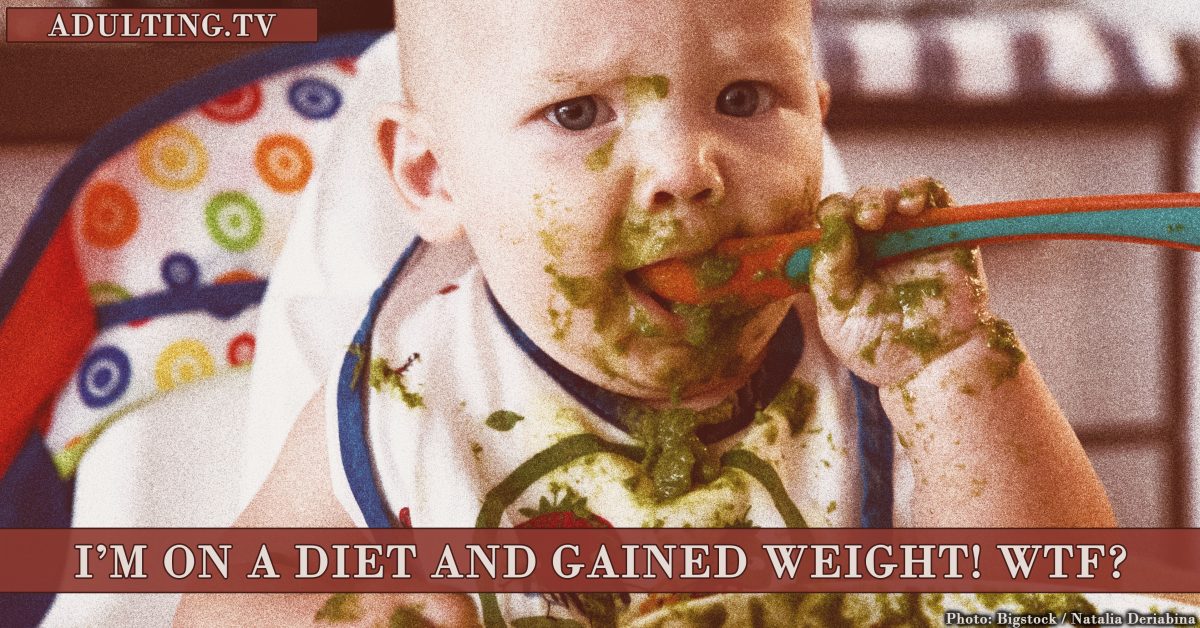
![[B021] Buying a Home for First-Timers ft. Mindy Jensen, Bigger Pockets](https://adulting.tv/wp-content/uploads/2017/04/buying-a-home-1200x628.jpg)
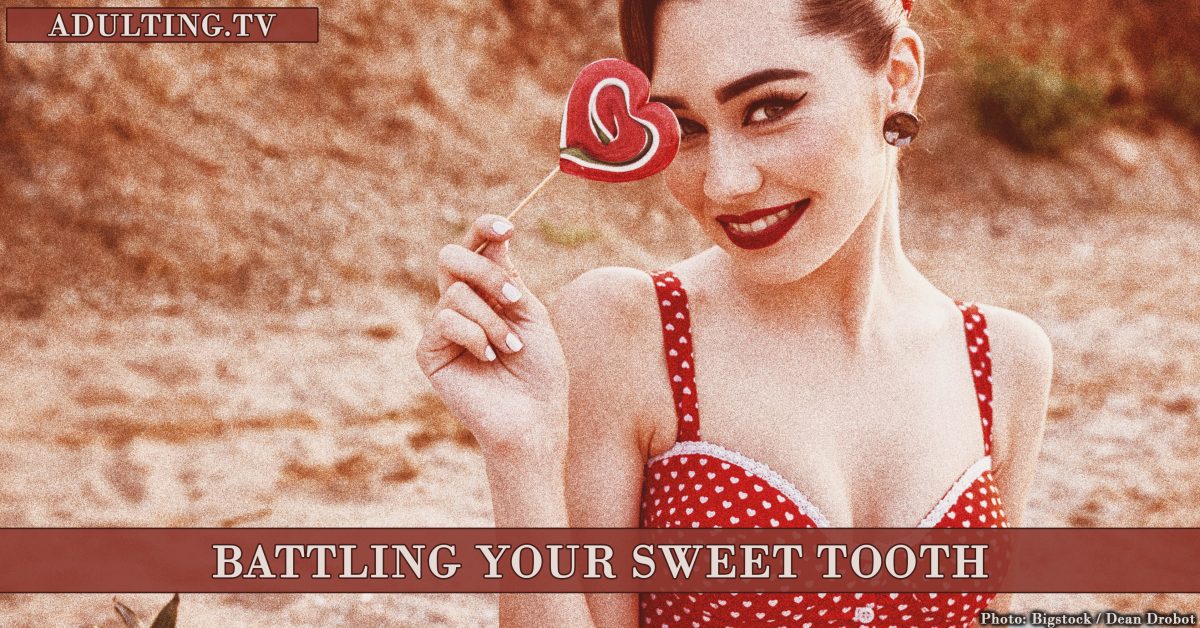
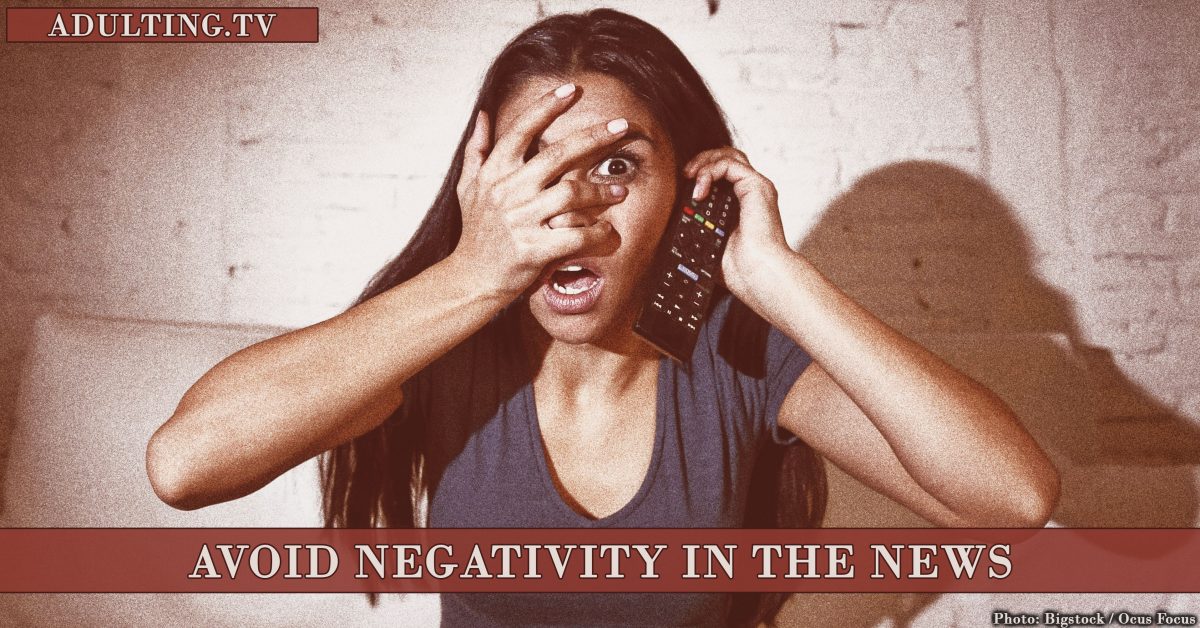
![[A062] Fake News, Lies, and Bias: Make Truth Matter Again](https://adulting.tv/wp-content/uploads/2017/03/a062-1200x628.jpg)








